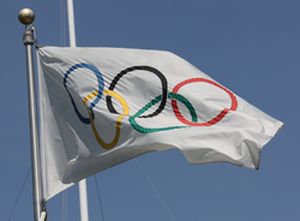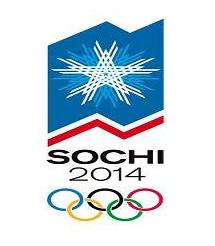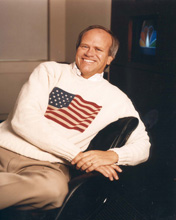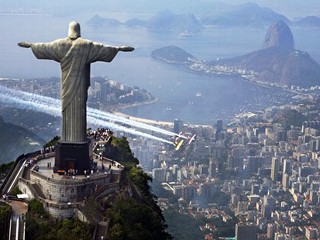Olympic Rights: U.S. Networks Gear Up For Games' Auction
The smarter way to stay on top of the multichannel video marketplace. Sign up below.
You are now subscribed
Your newsletter sign-up was successful
Bearing green, Brian Roberts, Bob Iger and David Hill will be at the Beau Rivage Hotel on the Lake Geneva shoreline this week in search of Olympic gold.
These top media executives are leading contingents from Comcast's NBCUniversal, Disney's ESPN/ABC and News Corp.'s Fox Sports on June 6 and 7 to visit with the International Olympic Committee in Lausanne, Switzerland. There, IOC president Jacque Rogge, executive committee member Richard Carrion, who will serve as lead negotiator and others, will conduct the auction to the U.S. rights to the 2014 and 2016 Games in Sochi, Russia and Rio de Janiero.

The price is expected to be steep: The IOC would like to match if not exceed the $2.2 billion that NBC, under General Electric's watch, paid for the rights to the 2010 Winter Games in Vancouver ($820 million) and next year's Summer Olympics in London ($1.2 billion).
All of the media conglomerates are proclaiming that their bids will be steeped in fiscal responsibility, a prudent tack given that NBC lost $223 million on its coverage from Vancouver last year. Projections call for NBCU's red ink to total $250 million from across The Pond next summer.
The last time the auction was held in 2003, it wasn't much of contest. NBC's bid, which included a GE TOP sponsorship worth some $200 million, dwarfed Fox's $1.3 billion, while ESPN/ABC played a $1.8 billion revenue-sharing gambit.
The IOC, which derives more than half of its global TV money and around one-third of its total revenues, from U.S. rights, has held off this auction, waiting first for the American economy to recover before finally deciding to move ahead with bids. Then after setting the proceedings for May, the IOC pushed the affair into June in deference to the networks' upfront advertising presentations.
"It's going to be fascinating to watch. There are three motivated bidders, three sets of strategies," said Lee Berke, principle of consultancy LHB Sports, Entertainment & Media, Inc. "This is not just a broadcast network ego thing, where you had to have the Olympics and then figured out a way to make it profitable. These are integrated media companies with multiple platforms that have to show shareholders how this makes financial sense."
The United States Olympic Committee, with chairman Larry Probst, CEO Scott Blackmun, general counsel and chief of legal and government affairs Rana Dershowitz and chief communications officer Patrick Sandusky, will be in Switzerland and, if past is prologue, is expected to be on hand for the networks' presentations and the opening of the sealed envelopes with the bids. The USOC, which currently receives 12.5% of the U.S. TV rights as part of a revenue-sharing arrangement with the IOC that is expected to be modified, must give its assent to the winning bid.
Fox Sports, whose group includes chairman Hill, co-president Randy Freer and CFO Larry Jones, will fire away first on Monday. Espousing live coverage overall and a packaged presentation in primetime, the News Corp. unit will tout its status as the top U.S. network seven years running among Madison Avenue's coveted 18-to-49 set. It could also bring a rolled-up dual broadcast audience by including MyNetwork TV.

On the cable side, Fox is looking to build the 99-million-home FX into more of a sports player, as evidenced by its commitment to college football and soccer. It reaches another 85 million homes via its various regional sports networks, which could provide local flair for athletes hailing from specific areas around the country. Speed (84 million subs), National Geographic Channel (71 million) and BTN (the erstwhile Big Ten Network, which is available to 80 million homes) are also part of the arsenal. Fox Soccer Channel would be a natural outlet for futbol at the Rio Games, a nation fueled by the fever of joga bonita.
"The Olympic Games are the ultimate in world sports competition," said a spokesman. "Fox plans to present everything we have to offer in detail and submit what we consider to be a competitive bid that supports the IOC's goals and also works financially for News Corp."
ESPN/ABC goes first on Tuesday. With a monthly license fee averaging more than $4.50 per sub, the worldwide clearly has the financial wherewithal to stuff the sealed envelope the most. Moreover, it's coming off the success of the 2010 FIFA World Cup in South Africa, which many viewed as a strong audition for the IOC as to what it could do with Games' coverage. Parent Disney is also reported to be considering a complementary $100 million TOP sponsorship.
Given its mantra to serve sports fans anytime, anywhere and on any screen, ESPN is committed to airing all of the Olympic action live. Executive vice president of content John Skipper, who along with ESPN/ABC Sports president George Bodenheimer and vice president of corporate projects Rob Simmelkjaer, will be joining Disney topper Iger in Lausanne, has said the network would then create more dramatic, taped packages for primetime on ABC.
Like ESPN, ESPN2 is in some 100 million homes, with ESPNews and ESPNU counting 74 million and 73 million subs, respectively. ESPN Classic has 35 million. Its roster also includes ESPN 3D, HD services,Spanish-language service ESPN Deportes, radio, print, ESPN.com, and five regional websites. Broadband portal ESPN3.com reaches 60 million U.S. homes, while its digital assets encompass mobile, authenticated services, WatchESPN and up to 30 different apps.
"No one else comes close to ESPN in our ability across multiple platforms to present and promote the Olympics and to raise the profile of Olympic athletes," said a company spokeswoman.
ESPN officials said they didn't anticipate any problems shifting extant sports schedules and commitments if the programmer were to secure Games rights.
Presumably, Disney also could tap into sister service ABC Family, which has televised Major League Baseball games, and/or Disney Channel for even more Games exposure.
Incumbent NBC, sans America's foremost Olympic advocate Dick Ebersol, who resigned as chairman of NBC Sports Group on May 19, gets last licks. In addition to Comcast chairman CEO Roberts, NBCU CEO Steve Burke, new NBC Sports chairman Mark Lazarus and NBC Olympics president Gary Zenkel will be among those making the trek to Switzerland.
The smarter way to stay on top of the multichannel video marketplace. Sign up below.
NBC Sports declined to comment about its Olympic strategies or if it were considering presenting all of the Games lives. The Winter and Summer Games, perhaps as a function of NBC's waiting to televise marquee events until primetime, along with the Kentucky Derby, are the only major sporting events with audience compositions that skew more female than male.
With that approach, NBCU has also scored the most-watched events in U.S. TV history, topped by the 215 million who saw its networks' 3600 combined hours from Beijing, which was boosted by the phenomenon known as Michael Phelps.
Its 835 hours from Vancouver garnered 190 million Winter Games watchers, more than Salt Lake City, and second only to the 204 million for the Lillehammer Olympics in 1994, which featured the Tonya Harding-Nancy Kerrigan contretemps. During its coverage, NBC topped American Idol twice, head-to-head, becoming the first network to do that with viewers and persons 18 to 49 after a six-year, 222-episode run.
With the medium's growth, NBC Olympic mobile platforms from Vancouver vastly outdistanced its deliveries from Beijing relative to page views and video streams, while NBC.com attracted 46 million unique visitors, 243% more than it did with Torino in 2006.

In past Games, NBCU has deployed the resources of Spanish-language broadcast network Telemundo, top cable channel USA Network, MSNBC, CNBC, Oxygen and Universal HD as Olympic destinations.
With Comcast now in control of the joint venture, national cable sports network Versus would also be in play, the Games presumably serving as a key driver to bolster its 28 cents monthly license fee and its subscriber base from its current total of 76 million. Universal Sports, a joint venture with Leo Hindery's InterMedia Partners, which currently showcases Olympic-related sports, and Golf Channel -- the game becomes an Olympic sport in London -- also figure to be in the mix.
All told, NBCU wields assets and cross-promotional capabilities stemming from 20 networks and 40 attendant Web sites. None of this speaks to the fact that NBC has televised more Olympics than any other network with the total reaching 13 and seven in a row in London.
Even without Ebersol, whom many observers believe would have given Comcast a decided edge if the bids were comparable, NBC Sports Group obviously has an experienced Olympic unit in house, not to mention a proven track record. Whether it will veer from its tried and true approach under its erstwhile leader during its presentation is one of the key questions that may determine the winner in Lausanne.

Last time around in 2003, the companies made their presentations and offered a sealed bid. Given NBC's zeal it was Games, set and match. This year's auction is supposed to follow the same format. However, the parties may be asked to make presentations that would include the 2018 Winter and 2010 Summer Olympics, the city sites for which have not yet been determined. That could up the ante to the $4 billion mark.
"The IOC is better off, if they believe economies are going to improve, to go short. That would certainly mean more dollars for the media companies, but they may be better able to amortize costs over a long period," said media analyst John Mansell. "Still, four seems like too many. But they've done it before, right?"
Mansell's allusion was to August 1995, when NBC and Ebersol scored the rights to the 2000 Summer Games in Sydney and the 2002 Winter Olympics in Salt Lake City. That marked the first time consecutive rights to the quadrennial competitions were awarded simultaneously. Later that year, Ebersol did himself one better garnering exclusive media rights for the 2004, 2006 and 2008 Games.
Considering that Sochi and Rio don't hold the appeal of Vancouver and London, the number of Games that might be involved and the players' overall auction ardor given the financial prospects, some wonder if the IOC will adhere to the 2003 process, or if it might become like the college of cardinals' papal election.
"What if the IOC doesn't see what it wants, or two of the bids are close and they come back and say, ‘What else can you do?' " said one network executive. "I don't think anybody really knows."

However it goes, the white smoke is expected to waft over Lausanne to America by mid-afternoon Tuesday. And rest assured, the winner will have extended a lot of green. That most likely will be the fate for most distributors as well in the manner of higher channel license and retransmission-consent fees and/or Olympic surcharges.
In the end, Berke believes Comcast will maintain NBC's Olympic heritage, but it might have to do business in a different way to turn a profit, perhaps with lower production costs and a greater utilization of the world feed. "Comcast, in the end, will find a way to make it work," he said. "However, I wouldn't be surprised to see ESPN win the bid."
Mansell sees it as a toss-up. "You think Comcast has motivation to keep the Games for NBC Sports, and ABC/ESPN certainly has the resources. But Barry Frank [IMG Media's executive vice president], who's so involved with so many things, he's picking Fox. It's really tough to predict this. Who wants it most?"
